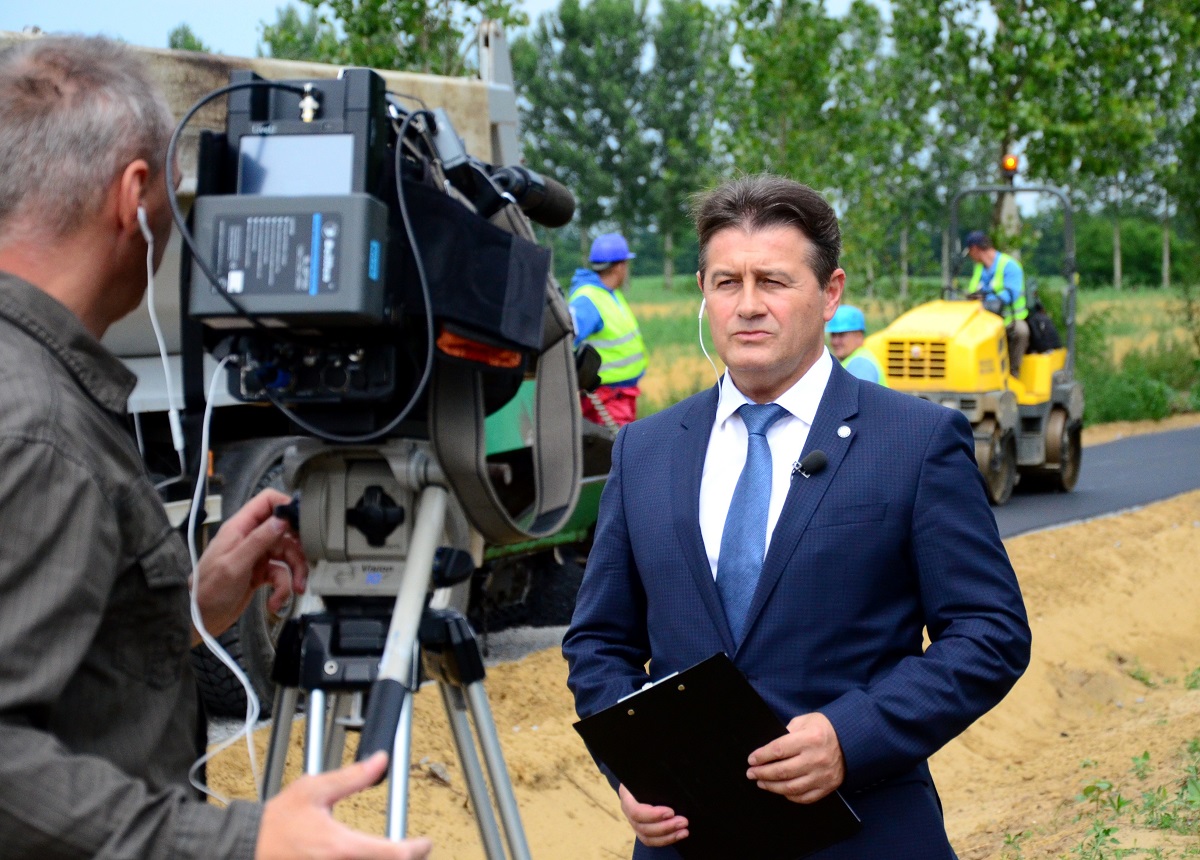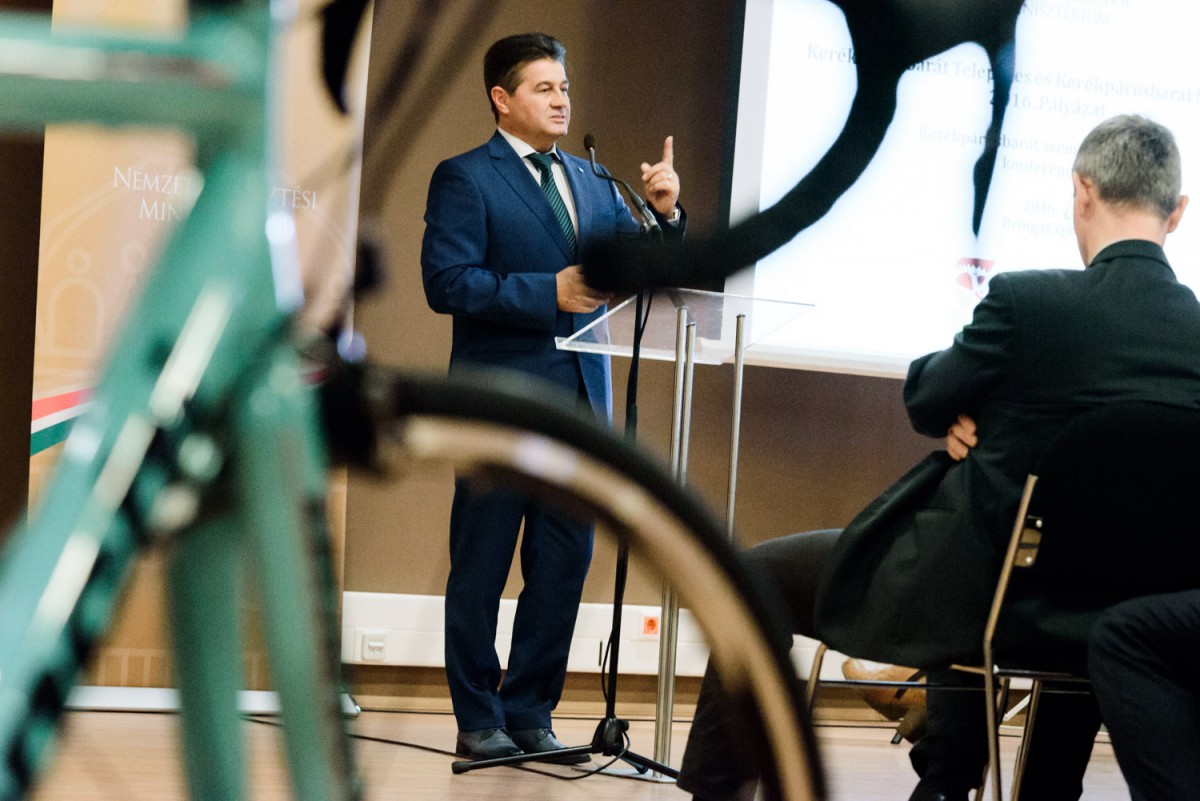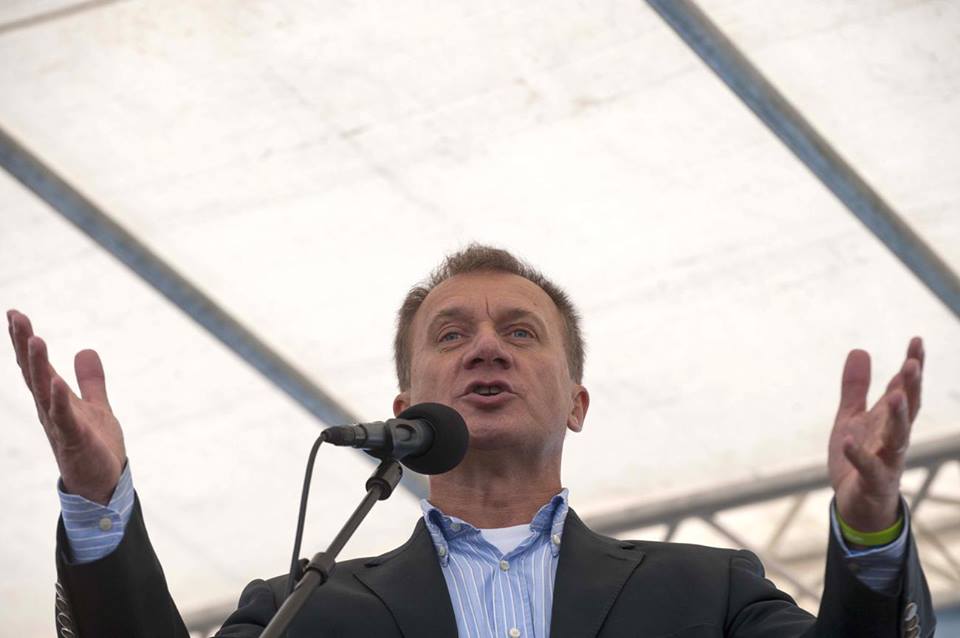We looked into politicians’ assets. Police started a harassment investigation

- In July, Direkt36 and its partners launched a project exposing how broken the politicians’ wealth declaration system is
- We uncovered how several politicians violated the rules, submitting incomplete or incorrect declaration forms
- Opposition parties initiated inquiries concerning some politicians’ assets
- Some of the politicians exposed, including the prime minister, just shrugged as a response but minister of state László Tasó went on the attack
- Despite his threats, he did not ask for correction of our story
- Yet he filed a complaint with the police claiming that he was harassed. The police started an investigation based on the complaint
A minister of state failed to declare some of his lands for years and omitted millions of state subsidies too. An opposition politician appeared to be penniless according to his asset declarations yet his companies turned out to be quite well off. Even the prime minister Viktor Orbán was caught violating some rules of the wealth declaration system.
These were some of the stories Direkt36 has reported since the beginning of July, when our project called Vagyonkereső (meaning ‘Asset Locator’ in Hungarian) was launched.
The wealth declarations in their current state are barely suitable to demonstrate the assets of politicians in a transparent way. Therefore, Direkt36, 444 and Transparency International have partnered to develop a database, in which anyone can search for the declarations of MPs. Our new site, Vagyonkereső, aims to help hold the politicians accountable. The database makes it easier to analyse data and detect previously hidden inconsistencies in the declarations. At the same time, it can put pressure on politicians to comply with the rules of the wealth declaration system.
We can only do this work if we have supporters. Become a supporting member now!
Combat of good and evil
The strongest reactions followed our article about László Tasó, minister of state responsible for transport. We uncovered that in his wealth declarations, he failed to declare millions of state subsidies and concealed some of his lands for years. These lands are located in a planned industrial development zone. In the case of some other lands, he listed a smaller share than he actually had in them.
After our investigation was published, Gergely Kulcsár of the opposition Jobbik party called for Tasó’s resignation and initiated a wealth declaration inquiry against him. The Parliament’s Immunity Committee, which is in charge of these inquiries, has not reacted yet, Kulcsár told Direkt36 on Friday. A similar inquiry was initiated by Viktor Szigetvári, leader of another opposition party, Együtt.
Wealth declaration inquiries may be launched either by the committee’s chairman or as the result of the decision of the majority of the committee’s members. The process is to find out whether politicians did comply with the rules of the wealth declaration system. If MPs are caught that they violated the rules the MPs have five days to correct their declarations. If they do it, the process is terminated.
Since 2014, opposition politicians attempted to launch inquiries multiple times but were never successful. Their claims were rejected on the basis of being unsubstantiated. The processes were blocked either by the chairman of the commission, Imre Vejkey, who belongs to the governing coalition, or the similarly pro-government majority of the commission members.
Tasó was apparently outraged by the story exposing his flawed declarations. Even before the article was published he had called queries ‘paid provocation.’ Later, in a statement, he accused Direkt36 of deliberately falsifying data. He also published a long post (of more than twenty paragraphs) on his official Facebook page talking about a discrediting campaign against him and the combat of good and evil. “They are piercing the heart so that they can kill the souls,” he accused the whole news media in the post that was removed from his page on a few minutes after publication.
Tasó disputed the statements of our articles in several interviews, accusing Direkt36 of misrepresenting the facts. His most frequent claim was that his latest wealth declaration fully complied with the truth (although our article did not state otherwise, we pointed out flaws in his declarations from the last twelve years). Tasó also talked a lot about how little value his lands have and tried to explain why he declared to be only a partial owner of a forest while being officially the sole owner. He claimed that marital law implies his wife to be owner of half of his properties. Yet the land registry data show otherwise.
Promised lawsuits against provocation
So far, Tasó has threatened at least eight times to file lawsuits against Direkt36 and other media organizations that reported our findings. He promised to initiate a criminal investigation as well as a civil lawsuit against the author of the articles, and he also said that he would ask for a correction of the article.
Still, Tasó failed to file an official correction claim. He had 30 days to do that, which expired at the end of July.
However, Tasó requested corrections from HírTV and Budapest Beacon, two of the several news organizations that published rewritten versions of our piece about the politicians’ assets. The lawyer of the news channel HírTV told Direkt36 that they refused to correct their article. Budapest Beacon has, however, published an official correction. They changed their article, which had contained some information that was taken from our original article without the full context.
Direkt36 is not aware of any additional corrections. We have contacted László Tasó through his office, asking him about what kind of lawsuits he had started and why he had failed to file a correction claim against Direkt36. There was no answer.
László Kovátsits, the lawyer who filed the correction requests on behalf of Tasó, refused to answer any of our questions, saying he is bound by secrecy rules. He even refused to confirm that he had been the lawyer representing Tasó in these cases.
There is, however, a legal procedure already under way which was initiated by Tasó. He turned to the police claiming that he and his family members suffered harassment in connection with Direkt36’s story. The press office of the Budapest Police told Direkt36 that a harassment investigation has been launched against unknown suspects.
The police refused to provide more details and Tasó’s lawyer did not respond to our questions, so it is not known what exactly Tasó’s complaint contained.
In his public statements, he accused journalists of harassment. He considered it harassment when video reporters of Index, a popular news site, asked questions about him in his hometown, Nyíradony. “They harassed my wife at our family house in Nyíradony and accidentally interviewed my neighbour who is a voyeur and at odds with me for years. They harassed locals on the streets, who had little information about their unscrupulous action. I warn these people to stay away from my family, they are not public figures!,” he wrote.
Tasó also suggested that Direkt36’s reporter harassed his family.
Direkt36’s reporter has indeed contacted several of Tasó’s relatives in connection with a story about how the state minister’s family members benefited from state-funded projects. The reporter contacted them via email and phone. After most of the involved refused to comment, we did not contact them anymore. The politician considered this, however, a “systematic and unscrupulous” harassment.
According to the Hungarian Criminal Code, harassment is when someone “engages in conduct intended to intimidate another person, to disturb the privacy of or to upset, or cause emotional distress to another person arbitrarily, or who is engaged in the pestering of another person on a regular basis, is guilty of a misdemeanour punishable by imprisonment not exceeding one year.”
László Bodolai, a lawyer of Index, told Direkt36 that he has never heard of a harassment investigation launched in connection with journalists doing their jobs.
Opposition’s actions
Direkt36 uncovered several errors in other politicians’ wealth declarations. One of them was Prime Minister Viktor Orbán. He violated the regulations for years when he was declaring some of his parcels bought in Felcsút, his home village. Because of the irregularities, several interesting details remained hidden from the public on how Orbán acquired the lands.
The head of press service at the PM’s office refused to give a detailed answer. Instead, he briefly commented that “the wealth declaration of the prime minister is full, accurate and in accordance with the law,” and that what is written there “is the truth.”
After our publication of the story, an opposition politician, Péter Juhász, called on Orbán to declare his real state of wealth. (In response, the governing Fidesz party once again initiated a wealth declaration inquiry against Juhász.) Another opposition politician (of the radical right-wing party Jobbik), Lajos Kepli, held a press conference about “Fidesz being consumed by a series of scandals of their false declarations,” and urged the party to “stop fabricating false declarations.” He also initiated a wealth declaration inquiry process against Orbán. He has not got an answer so far, but it might be because of the vacation season, he told Direkt36.
Direkt36 found some irregularities in other Fidesz politicians’ declarations too. Imre Pesti, for example, failed to declare his right to use a property. Zsolt Becsó omitted a company and millions of public funds from his declarations, taking advantage of the flaws of the declaration system.
Pesti told Direkt36 that it was not obligatory to declare enjoyment rights in 2006. However, since 2013 the regulations specifically require the declaration of such assets. The rules were less clear before 2013, but they did not provide exemptions from declaring enjoyment rights, which, just like other assets, have to be declared every year. Opposition party Együtt initiated a wealth declaration inquiry process against Pesti, and Jobbik held a press conference about him.
Becsó told Direk36 that he omitted the company from his wealth declarations because he does not have a direct ownership as a “private person” in it, but through a different company. Later, he posted a long response on his Facebook page, calling our article “discreditation of the worst kind.”
Opposition politicians make mistakes, too
Direkt36’s investigation found examples on the opposition’s side as well that showed how broken the current system is.
Vice president of the opposition party DK (Democratic Coalition), László Varju, looks almost entirely penniless, according to his wealth declarations. He does not own a property or a car and does not even have serious savings, only shares of several companies. These companies, however, have assets and income. Thus Varju and his family own, among others, a hostel near the bank of the Danube and two apartments next to lake Balaton.
This showed a very serious shortcoming of the system: that if an MP’s assets are held by companies the wealth declaration will show nothing about it.
According to Varju, his declarations do show his real wealth, because the financial state of his companies can be easily looked up in the company registry. He admitted, however, to have been making a mistake when he failed to declare some of his companies for years. But he said he had corrected the error in his latest wealth declaration. His party, DK, also issued a statement saying that Varju admitted and corrected his mistake. The party promised to “go on with the fight to renew the wealth declaration system,” because “full transparency” is needed.
Governing party Fidesz seized to opportunity to criticise DK for Varju’s wealth situation. János Halász, spokesman of the governing Fidesz party, said that “a left-wing trick was revealed once again”, and added that the opposition is full of corruption cases. RTL News tried to ask Halász about the wealth declaration violations committed by Fidesz MPs, but he refused to answer the question.





